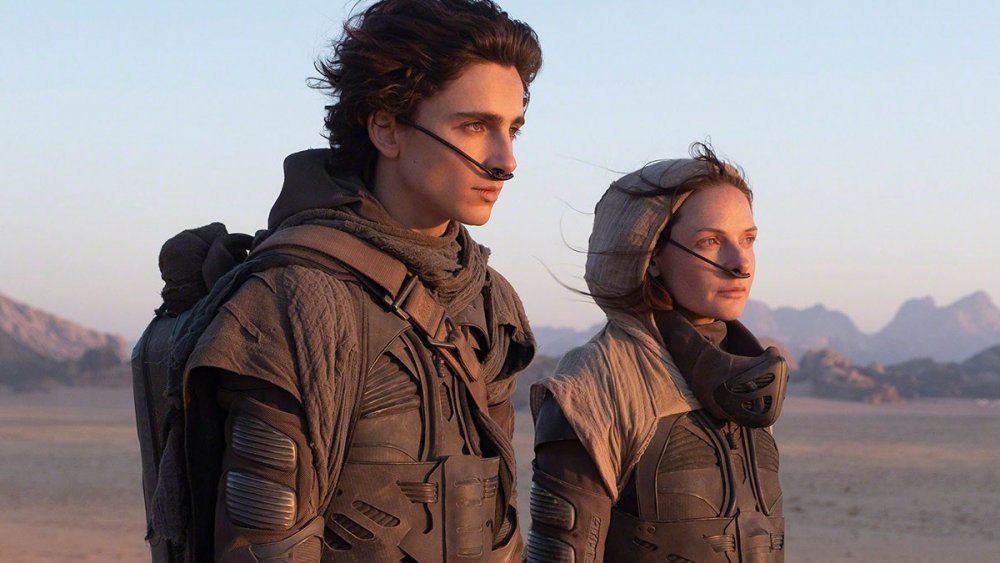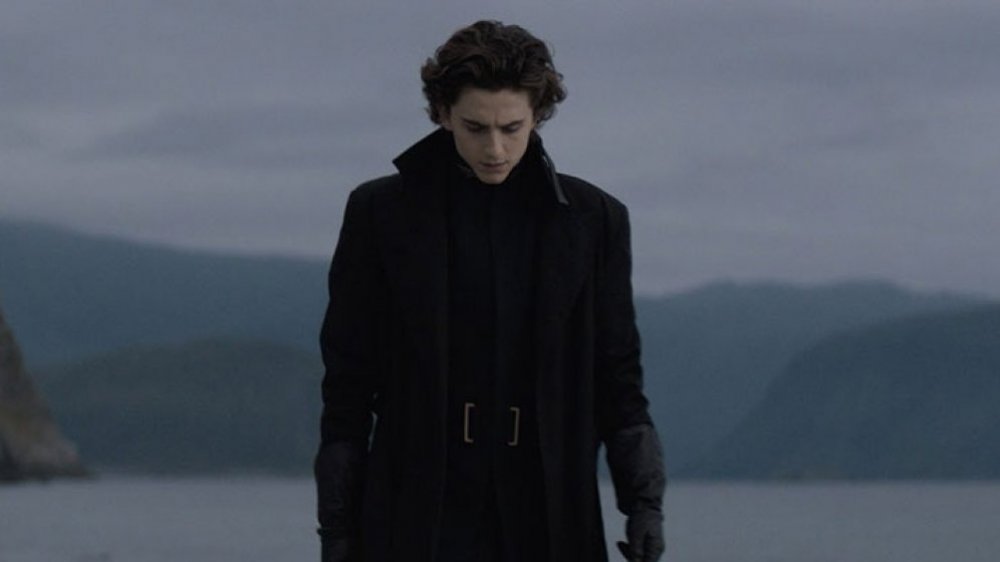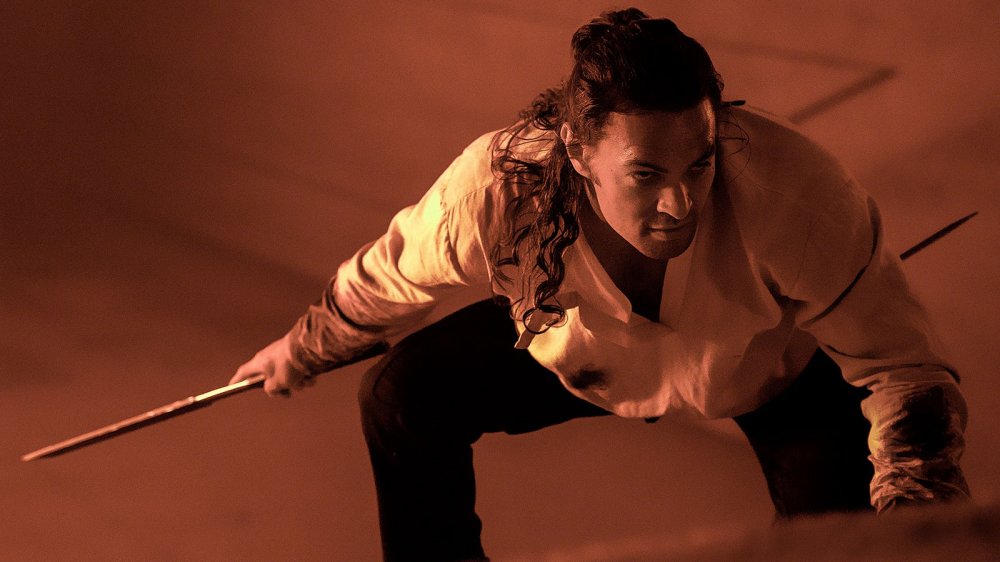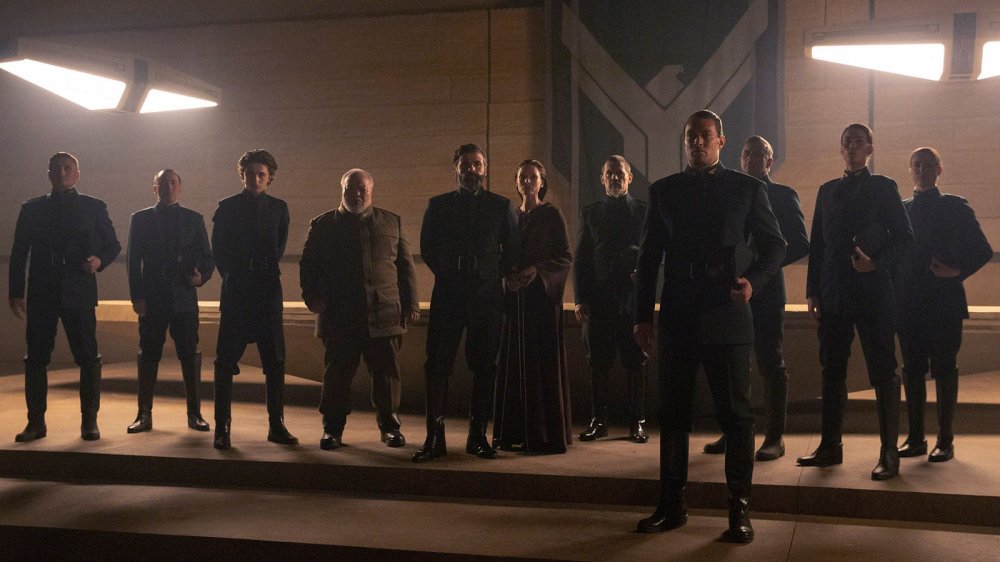Dune Director Says Making The Reboot Is 'The Most Difficult Thing' He's Done In His Life
It seems like every decade or so, some ambitious science fiction filmmaker takes a crack at adapting the labyrinthine story of Frank Herbert's Dune. This time, Arrival director Denis Villeneuve is reaching for the mantle, and from a recent interview with Vanity Fair, it sure seems like he understands the gravity of the undertaking.
Herbert's seminal 1965 space opera takes place largely on the planet Arrakis, a global desert populated by blue collar miners, the nomadic Fremen, and massive sandworms that are as dangerous to human life as they are essential to the planet's ecology. Arrakis is the only known producer of the spice melange, a near-magical ingredient that facilitates interstellar travel and is thus the most valuable substance in the universe. As a result, this otherwise unassuming planet has become a critical piece in the complex political maneuverings of three great houses: Atreides, Harkonnen, and Corrino.
Herbert's first — and most famous — novel in the Dune universe follows the scion of one of those great houses, Paul Atreides, after he's uprooted from his home on Caladan and moved to the polar city of Arrakeen on Arrakis. After surviving a failed attempt to overthrow his house, Paul escapes to live among the Fremen, rising to become the nomadic peoples' Mahdi — a kind of messianic figure destined to cast off the yoke of feudal oppression.
In 2016, Frank Herbert's son Brian announced that Villeneuve had been hired to adapt Dune for film. Fresh off the success of Arrival, Villeneuve seemed like the perfect choice to tackle Dune. Now, just eight months out from the ambitious film's release, the director is opening up about just why the creation of a Dune movie has always seemed so daunting — and why it's the hardest thing he's ever done.
The challenge of adapting such a complex work
Villeneuve told Vanity Fair in an exclusive first-look showcase that directing Dune has been "by far the most difficult thing I've done in my life." That's quite the statement, considering he's essentially built his career on translating complicated source material to screen.
2016's Arrival adapted a short story by sci-fi legend Ted Chiang entitled "The Story of Your Life." Many respected publications have sung Chiang's praises, some even calling his 1998 tale the greatest science fiction story ever written — a quiet meditation on the Sapir-Whorf hypothesis and the power of language. Villeneuve found a way to make Chiang's story not only cinematic, but also one of the most compelling sci-fi features of all time.
The hope is that the same vision Villeneuve applied in adapting "The Story of Your Life" into Arrival will serve him well with Dune. Unlike Chiang's story, Herbert's novel is an epic bildungsroman – a coming-of-age adventure that should be a natural fit for the silver screen. Dune is unique in its genre, however, for its intersection with heady questions of religion and morality as well as its reliance on dense interiority to move the story forward. While the novel contains a few epic battle sequences and ample scenes of kinetic action, much of its plot unfolds through the tortured cogitations of its central character. It's difficult for any filmmaker to portray so much internal monologue visually, and it's always been one of the central challenges to adapting Dune.
"It's a book that tackles politics, religion, ecology, spirituality—and with a lot of characters," Villeneuve noted to Vanity Fair.
Given the enormity of the task at hand, the decision was apparently made early to divide the novel into two films. "I would not agree to make this adaptation of the book with one single movie," Villeneuve said. "The world is too complex. It's a world that takes its power in details." Hopefully the extra time of two features will offer Villeneuve the space to successfully translate Paul's (to be played by Timothée Chalamet) interiority into a visual medium. If so, he'll be the first to overcome that particular hurdle.
Denis Villeneuve hopes to succeed where many others have failed
Bringing Dune to the screen in a satisfying way has become a kind of White Whale in the entertainment industry. Many before Villeneuve have attempted it, but so far none have succeeded. The first attempt came in 1984 from Twin Peaks auteur David Lynch. Lynch's Dune featured a young, fresh-faced Kyle MacLachlan in the lead role of Paul Atreides. While visually arresting, the original Dune film made such significant alterations to the source material that the finished product is hardly recognizable as Dune. Since its dubious reception, Lynch's Dune has become a bit of a cult classic, though it hardly represents the proper treatment that the most-read sci-fi novel in history deserves.
In 2000, Syfy released a three-part Dune miniseries with Alec Newman playing Paul Atreides and Will Hurt as his father, Duke Leto I. While the cable network's adaptation did hew closer to Herbert's original story than Lynch's, the stilted script and stuffy performances left many fans feeling unfulfilled. Tor.com put its finger on the primary problem in its contemporaneous review: "The story naturally drags at certain points in the book that work in prose but not on screen... The narrative gets over-explained in an effort to be sure that no one watching is left behind."
Despite the critical drubbing, Syfy followed up three years later with another six-hour miniseries, entitled Children of Dune, adapting the next two books in Herbert's series. This miniseries marked the first attempt to bring any of the extended Dune canon to screen, and by compressing two novels into one series instead of lingering on every scrap of interiority, Syfy put forth a pretty satisfying adaptation. The first three Dune novels are kind of trilogy, with Dune Messiah and Children of Dune addressing the repercussions of Paul Atreides' ascension in Dune. If Villeneuve's Dune proves to be the success that everyone is hoping for, there's a good chance he may be called upon to complete the original trilogy with a follow-up (or two).
After Syfy's miniseries, avant-garde filmmaker Alejandro Jodorowsky pitched a famously thwarted attempt to capture Dune on screen. Every detail of the French-American director's failure to render Herbert's narrative using his unique aesthetic was chronicled in the award-winning documentary Jodorowsky's Dune. Jodorowsky cast his own son as Paul Atreides, and forced him into a training regimen that bordered on child abuse. In a completely meta turn of events, Jodorowsky's Dune is by far the most watchable Dune movie to date.
David Lynch and Alejandro Jodorowsky — in the universe of Dune, Villeneuve certainly stands on the shoulders of filmmaking giants.
Denis Villeneuve steps into a massive sci-fi epic
The Dune Saga is actually a series of six books authored by Frank Herbert, with two sequels of questionable merit penned by his son, Brian, and author Kevin J. Anderson. In addition to the principal series, Brian and Anderson have also authored a plethora of prequels and interquels dubbed by fans of Frank's original work as "the McDune Novels."
If the appetite among movie-goers exists, there's certainly enough material for Villeneuve to keep making Dune movies well into the next decade, even if he completely ignores Brian Herbert and Kevin J. Anderson's late-term additions. If Villeneuve is looking for an even bigger challenge after tackling the original trilogy, he's got one waiting for him at the end of Children of Dune. Hebert's fourth novel, God Emperor of Dune, moves the story thousands of years into the fictional future and takes place almost entirely inside the head of Paul's immortal son, Emperor Leto II Atreides, as he slowly turns into a giant worm. Yup.
Legendary Entertainment and Warner Bros. recently pulled back the curtain on Villeneuve's Dune, releasing a production still of Chalamet as Paul Atreides. The image appears to show Paul at the outset of his journey, still comfortably situated on his home planet of Caladan. One day later, Vanity Fair published its full first-look Dune exclusive, some photos from which are interspersed through this article. As you may gather, Dune features a stellar cast: Rebecca Ferguson as Lady Jessica (Paul's mother), Oscar Isaac as Duke Leto Atreides (Paul's father), Zendaya as Paul's love interest Chani, and Jason Momoa as House Atreides swordmaster Duncan Idaho, as well as Jason Momoa, Stellan Skarsgård, Dave Bautista, Javier Bardem, and more.
We'll find out soon if Villeneuve actually managed to capture that White Whale. Dune is set to hit theaters on December 18.



